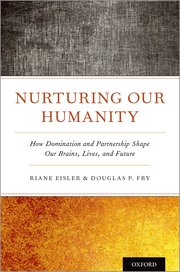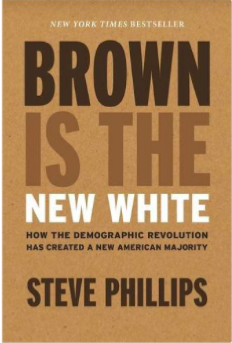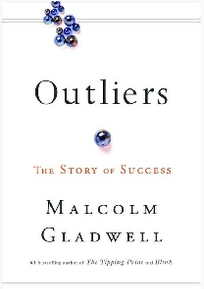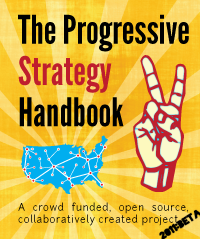Quotes from “Outgrowing growth: why quality of life, not GDP, should be our measure of success”
The world’s right-wing authoritarian, self-enriching, gobble-up, neoliberal, abusive, form of capitalism is based on never ending growth and has birthed massive inequality and the 6th Great Extinction. A major change in this economic system to improve quality of life and end the climate crisis is needed.
“Mainstream economics still thinks growth is essential, but this blind belief in GDP is just enriching the rich and killing the planet. We don’t need more growth to improve people’s lives. By working less, buying and producing less, and investing in public services, we can improve quality of life – and fight the climate crisis.”

“Think about it: we’ve built up a global fossil fuel infrastructure over the past 250 years, and now we have to completely overhaul it in only 30. Everything has to change in a matter of decades.
“The old fantasy that market mechanisms will somehow magically solve the climate crisis has been thoroughly dashed, and a new consensus is emerging: we need coordinated government action on a massive scale. “
Only government action can force corporations to change business as usual. Without government intervention, energy use and CO2 production will never reverse, and life’s quality will further deminish.
“The evidence is mounting: if we want a decent shot at climate stability, high-income nations will have to shift to post-growth economic principles. This would have been unthinkable in mainstream circles only a few years ago, but there’s now a striking consensus forming. In 2018, 238 scientists called on the European commission to abandon growth as an objective and explore post-growth futures. In 2019, more than 11,000 scientists from over 150 countries published an article stating that ‘We need to shift from pursuing GDP growth and affluence toward sustaining ecosystems and improving well-being.’
“Post-growth thinking is starting to trickle into policy, too. Jacinda Ardern, the prime minister of New Zealand, captured headlines in 2019 with her promise to abandon GDP growth as an objective in favour of wellbeing. The leaders of Scotland and Iceland have indicated that they will follow suit. With each announcement, social media erupted with excitement. People are ready for something different.”
What people want and need is economic, social, racial, and environmental justice and that is incompatible with endless growth in inequality under authoritarian capitalism. Quality of life in America, as measured by life expectancy, has dropped as per capita GDP has risen. “Spain spends $2,300 per person on healthcare, which is enough to secure one of the highest life expectancies in the world (83.3 years). The United States spends four times more to get worse results.”

Another measure of quality of life is education. America’s per capita GDP is failing to educate its citizens. “Finland has one of the best education systems in the world, despite having a GDP per capita that’s 23% less than the United States. Estonia ranks highly too, with 66% less GDP per capita. Poland outperforms the United States with 77% less.”
The reason America’s per capita quality of life is so low is because of massive inequality. It’s only available to the 1% who have far more wealth than is necessary to provide their own cadillac-level of health and education. The lower quality of life for the 99% drags America’s average down.
“ … it becomes clear that growthism is little more than ideology – an ideology that benefits a few at the expense of our collective future. We’re urged to step on the growth accelerator with deadly consequences for our planet, all so that a rich elite can get even richer.
“The truth is we don’t need more growth to improve people’s lives. We can accomplish our social goals right now, without any growth at all, simply by sharing what we already have more fairly, and by investing in generous public goods. It turns out justice is the antidote to the growth imperative – and key to solving the climate crisis.”
The policy objective of switching from the inequality of growth to the justice of universal wellbeing will require massive, near-term, change. This includes significant scaling back on energy use along with massive conversion to renewables. Growth drives energy consumption and planned obsolescence is what drives growth – this has to stop. Advertising also drives energy consumption by driving consumption of more stuff that goes obsolete.
“We like to think of capitalism as a system that’s rational and efficient when it comes to meeting human needs. But in some respects, it’s exactly the opposite. In pursuit of constant growth, firms resort to intentional inefficiencies. This might be rational from the perspective of profits, but from the perspective of human need, and from the perspective of ecology, it is a kind of madness. It is madness in terms of human labour, too. Think about the millions of hours that are poured into producing stuff that’s designed to break down, or that people don’t actually need in the first place.”
Making such massive change must be forced by the federal government. That requires a massive change in government and wresting control from the growth oriented corporations. Then legislation is possible that promotes universal wellbeing:
- Reorganizing dirty energy businesses to clean energy production
- Expanding the use of clean energy for product transportation
- Ending planned obsolescence
- Reducing the workweek to handle the slower growth while maintaining employment with a living wage
- Universal basic income and retraining programs as needed for those who become unemployable
- Replacing authoritarian corporations with democratic coops
- Expanding mass transit
- Eliminating ecologically destructive and socially unnecessary pro-growth industries like manufacturers of WMDs
- Providing healthcare and education for all
- Implement Green New Deal
“What’s exciting about this move is that it has a substantial positive impact on wellbeing. Studies in the US have found that people who work shorter hours are happier than those who work longer hours, even when controlling for income. And it has a big impact on energy demand, too. If the United States were to reduce its working hours to the levels of western Europe, its energy use would decline by a staggering 20%.
“Public interest in post-growth economics has soared over the past year as the climate crisis worsens. With fires blazing through Australia and the Amazon, floods swamping northern England, droughts driving migration, and record heatwaves searing across Antarctica, people realise that the status quo has us hurtling toward disaster, and they’re increasingly open to new ideas. In the 2020s, we can expect that the climate movement will rally around the Green New Deal and a vision for a completely new economy. “
The openness “to new ideas” is demonstrated by greater acceptance of democratic socialism, , especially by those born or growing up in this century and who have and will suffer the most in a growth oriented economy.





























